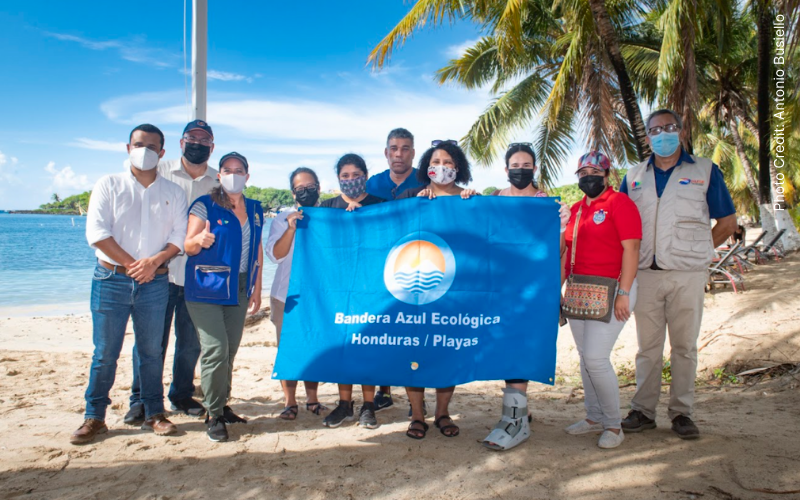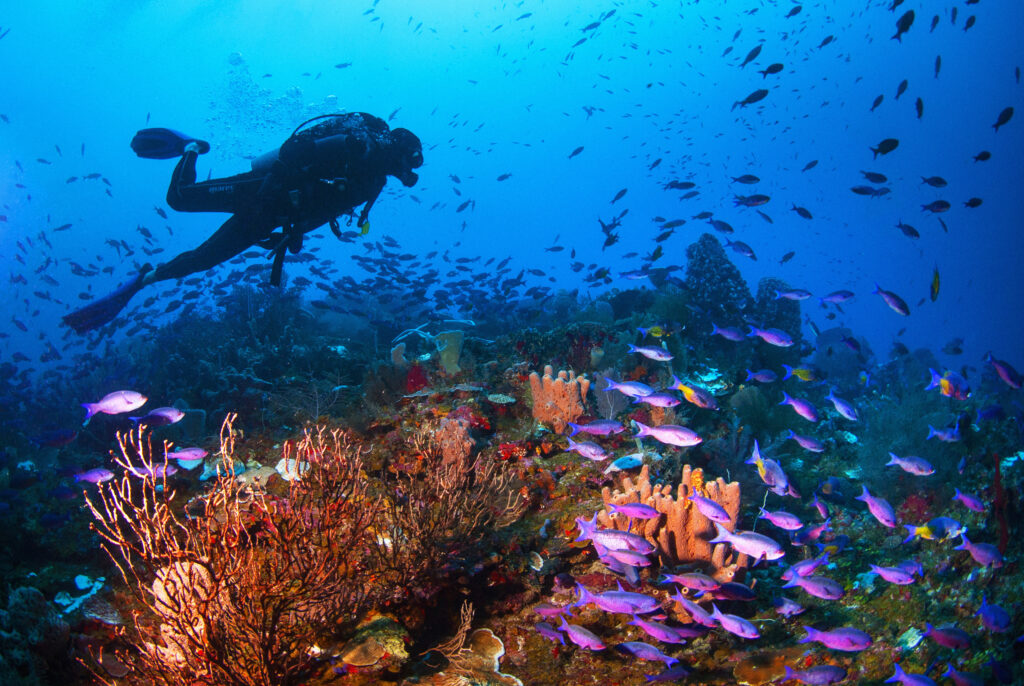It’s an exciting time at CORAL as we look to replicate our success and maximize our impact in new locations across the Western Caribbean.
We started collaborating with the Belize Tourism Board (BTB) to expand our coral reef conservation work to Belize City and its surrounding areas. This partnership offers an opportunity to take steps toward reducing water pollution and expanding sustainable tourism programs that protect Belize’s coral reefs.
Improving Water and Sanitation
One of our long-term projects in Belize is setting the foundation for the construction of a wastewater treatment system in Caye Caulker, a small island off the coast of Belize City. This could help ensure coral reefs have the clean water they need, similar to what we achieved in West End, Honduras. By partnering with the local community in West End, we operationalized a wastewater treatment system which decreased the amount of bacteria in nearshore waters by more than 99 percent between 2013 and 2020.

The project was so successful that the community in Caye Caulker is now interested in collaborating on a similar initiative. The island shares similarities to where we’ve worked in Honduras, in addition to having valuable coral reefs that offer food and economic opportunities to the local community.
Right now, poor water quality from an inadequate wastewater treatment system threatens the health of coral reefs, surrounding marine animals, and people in Caye Caulker. By advancing this project, we will begin to implement a better system that benefits both the community and its reefs.
Promoting Sustainable Tourism
Additionally, we are promoting sustainable tourism opportunities in and around Belize City, which will help protect the area’s natural resources and build a culture that prioritizes the environment.
“We are reshaping the perception of tourism in Belize,” says Tanya Amaya, CORAL’s regional program director. “A tourism destination is more than just a place to visit, it is also a community. By building a culture of sustainable tourism, we can also help protect and create benefits for the community, like securing clean water or promoting safety.”

Currently, we are collaborating with relevant stakeholders to establish a Destination Management Organization. This locally managed entity would oversee different aspects of the tourism destination and safeguard the area’s natural and cultural heritage. As part of that initiative, we are also promoting an educational program for tourism operators, which focuses on ways to teach travelers about conservation.
Monitoring Nearshore Water Quality
To support both these sanitation and tourism initiatives, we are maintaining the regional water quality monitoring program in Belize that we launched in 2020. Through this program, we have built a network of partners that monitor offshore water quality across 90 sites in the Western Caribbean in order to determine the impact of land-based pollution in high-tourism areas and identify areas that require wastewater and sanitation interventions.
Land-based pollution, often a result of inefficient wastewater management, uncontrolled coastal development, and unsustainable agricultural activities, can bring excess nutrients that spur algal growth. When algae become too prominent on coral reefs, they can block the sunlight that reaches corals (an important source of nutrients) and impact the overall health of the ecosystem and its animals.
“Monitoring water quality in Belize gives us the necessary data to advocate for more sustainable projects and solutions in the region,” says Amaya. “Together with local partners and community members, we are fighting for the health of key coral reefs and supporting coastal communities that are dependent on those ecosystems.”
Thanks to our partnership with the BTB, we are able to push forward these important initiatives in Belize. We look forward to continuing this ongoing partnership and celebrating the success it brings this year. To learn more about our work in the Western Caribbean, check out our programs page.
